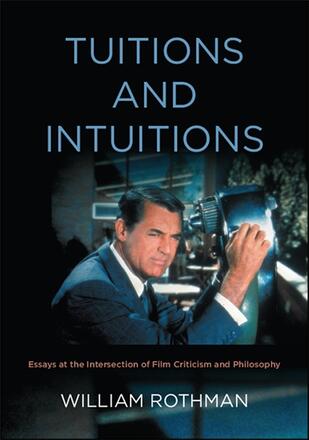
Tuitions and Intuitions
Essays at the Intersection of Film Criticism and Philosophy
Alternative formats available from:
Makes the case that philosophy has an essential role to play in the serious study of film.
Description
William Rothman has long been considered one of the seminal figures in the field of film-philosophy. From his landmark book Hitchcock: The Murderous Gaze, now in its second edition, to the essays collected here in Tuitions and Intuitions, Rothman has been guided by two intuitions: first, that his kind of film criticism is philosophy; and second, that such a marriage of criticism and philosophy has an essential part to play in the serious study of film. In this book, he aspires, borrowing a formulation from Emerson, to "pay the tuition" for these intuitions.
Thoughtful, philosophically sophisticated, and provocative, the essays included here address a wide range of films, including classical Hollywood movies; the work of "auteur" directors like Alfred Hitchcock, George Cukor, Yasujirō Ozu, and Woody Allen; performances by John Barrymore and James Stewart; unconventional works by Jean Genet, Chantal Akerman, Terrence Malick, and the Dardenne brothers; the television series Justified; and documentaries by Jean Rouch, Ross McElwee, and Robert Gardner. All the essays address questions of philosophical significance and, taken together, manifest Rothman's lifelong commitment when writing about a film, to respect the film's own ideas; to remain open to the film's ways of expressing its ideas; and to let the film help teach him how to view it, how to think about it, and how to discover what he has at heart to say about it.
William Rothman is Professor of Cinema and Interactive Media at the University of Miami. His previous books include, as author, Hitchcock: The Murderous Gaze; as editor, Cavell on Film and Three Documentary Filmmakers: Errol Morris, Ross McElwee, and Jean Rouch; and as coeditor, with Rebecca Meyers and Charles Warren, Looking with Robert Gardner, all published by SUNY Press.
Reviews
"Tuitions and Intuitions is simply indispensable to anyone interested in philosophy and in film as philosophy. This book as a whole expresses and exemplifies moral perfectionism through the exploration of what our self becomes with this experience of cinema." — Sandra Laugier, University Panthéon Sorbonne, Paris
"Bringing Rothman's work together highlights patterns and consistent concerns that may not otherwise be obvious to readers. The book will be invaluable to current and future Rothman scholars." — Kyle Stevens, author of Mike Nichols: Sex, Language, and the Reinvention of Psychological Realism